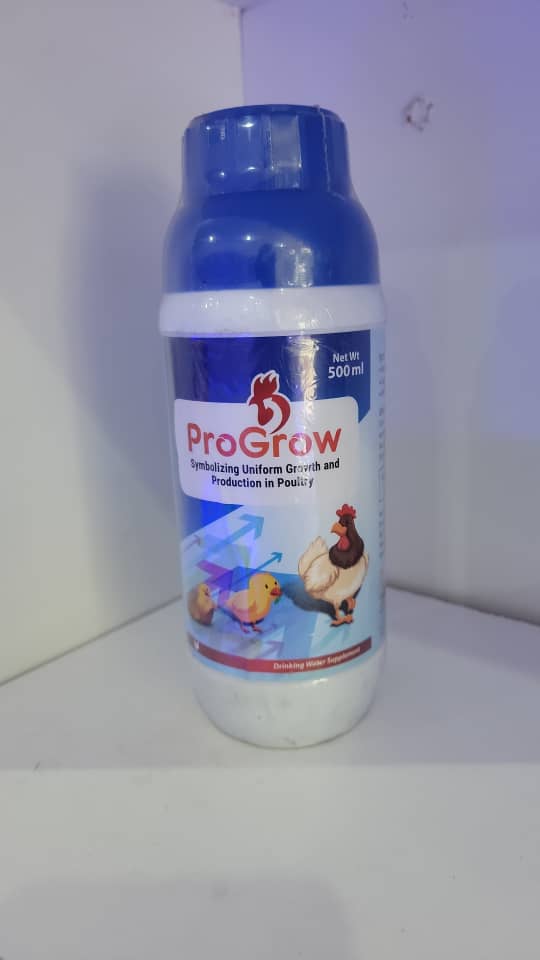AGRO-VET
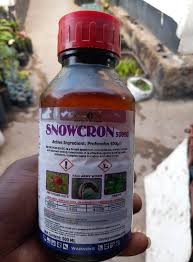
SNOWCRON 500EC 100ml
ZMW59
This is a chemical or biological substance used to control or kill insects that are considered pests. Insecticides are commonly used in agriculture, gardening, and in public health to protect crops, plants, and structures from insect damage or to reduce the spread of insect-borne diseases. Here’s a general description: Types of Insecticides: Chemical Insecticides: Organophosphates (e.g., malathion, chlorpyrifos): These inhibit enzymes essential for the nervous system of insects. Pyrethroids (e.g., permethrin, cypermethrin): Synthetic chemicals similar to pyrethrins, derived from chrysanthemum flowers. They disrupt the nervous system of insects. Neonicotinoids (e.g., imidacloprid, thiamethoxam): They affect the nervous system, particularly acetylcholine receptors in insects. Carbamates (e.g., carbaryl): Inhibit cholinesterase, an enzyme vital for nerve function in insects. Biological Insecticides: Bacillus thuringiensis (Bt): A naturally occurring bacterium that produces toxins harmful to specific insect larvae. Neem oil: Extracted from the neem tree, it disrupts insect growth, reproduction, and feeding. Insect Growth Regulators (IGRs): These disrupt the development of insects at various stages (larvae, pupae, etc.), preventing them from maturing or reproducing. Natural Insecticides: Examples include plant-based oils like rosemary oil, peppermint oil, or pyrethrum. Mode of Action: Insecticides work in various ways depending on the type: Nervous system disruption: Many insecticides affect the insect's nervous system, causing paralysis or death. Feeding deterrents: Some insecticides work by making the plants unappealing or toxic to insects. Reproductive interference: Some disrupt the ability of insects to breed or develop. Growth regulation: Insect growth regulators prevent insects from reaching maturity or laying eggs. Applications: Agriculture: Protects crops from pests that damage or destroy plants. Public health: Used to control vectors of diseases like mosquitoes (e.g., malaria, dengue). Household and garden: Applied to control pests such as ants, termites, or houseflies. Safety Considerations: Toxicity: Insecticides can be toxic to humans, pets, wildlife, and beneficial insects like bees if not used properly. Environmental Impact: Pesticides can harm ecosystems, especially if overused or misapplied. Integrated pest management (IPM) practices are often recommended to minimize harm. Resistance: Overuse can lead to pest resistance, reducing the effectiveness of the insecticide over time. Always follow label instructions and safety precautions to ensure safe and effective use.
View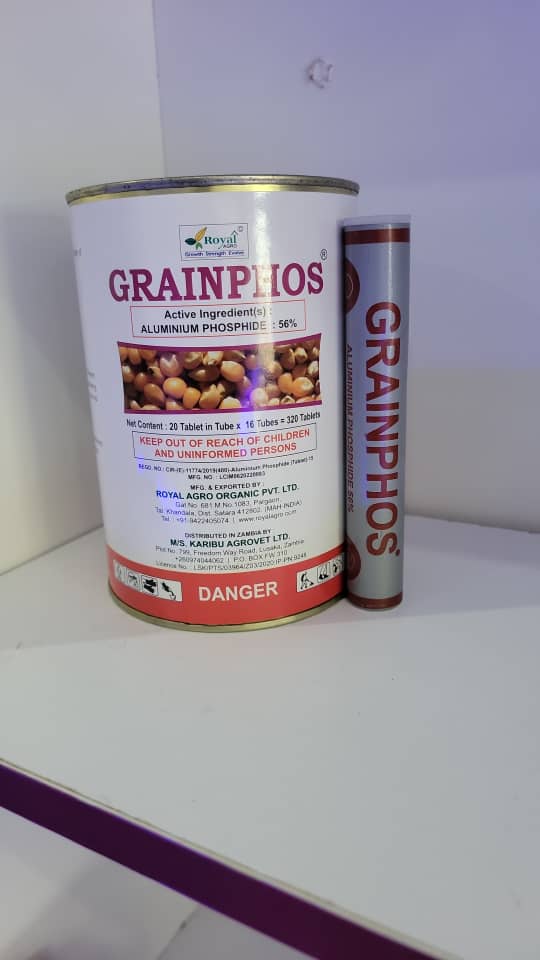
GRAINPHOS (320 Tablets)
ZMW320
This is a highly effective insecticide and rodenticide that works by releasing phosphine gas when it comes into contact with moisture. It is primarily used in fumigation for controlling pests in stored products, grain silos, warehouses, and rodent infestations.
View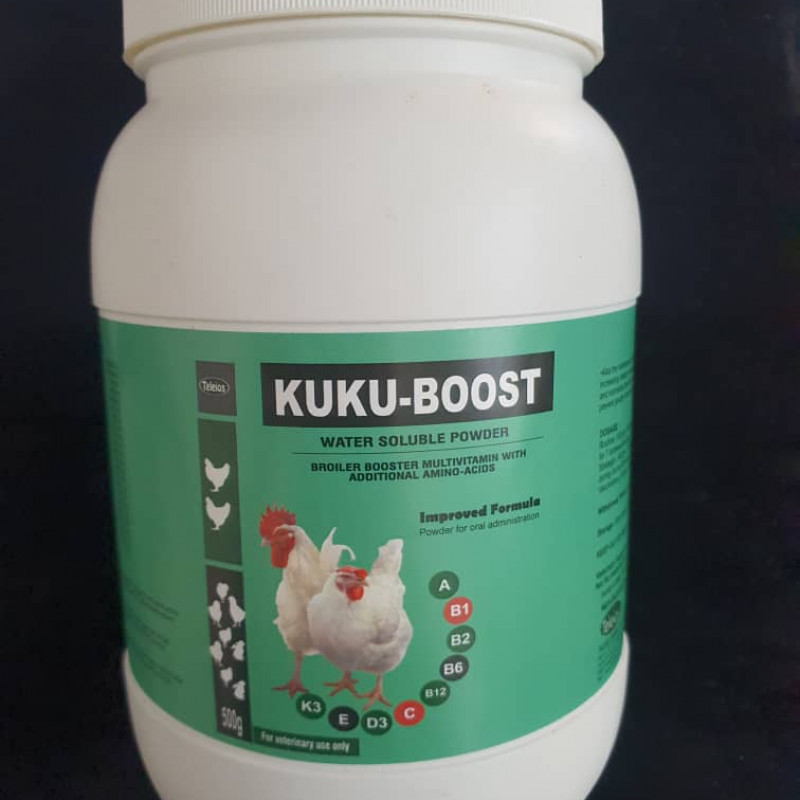
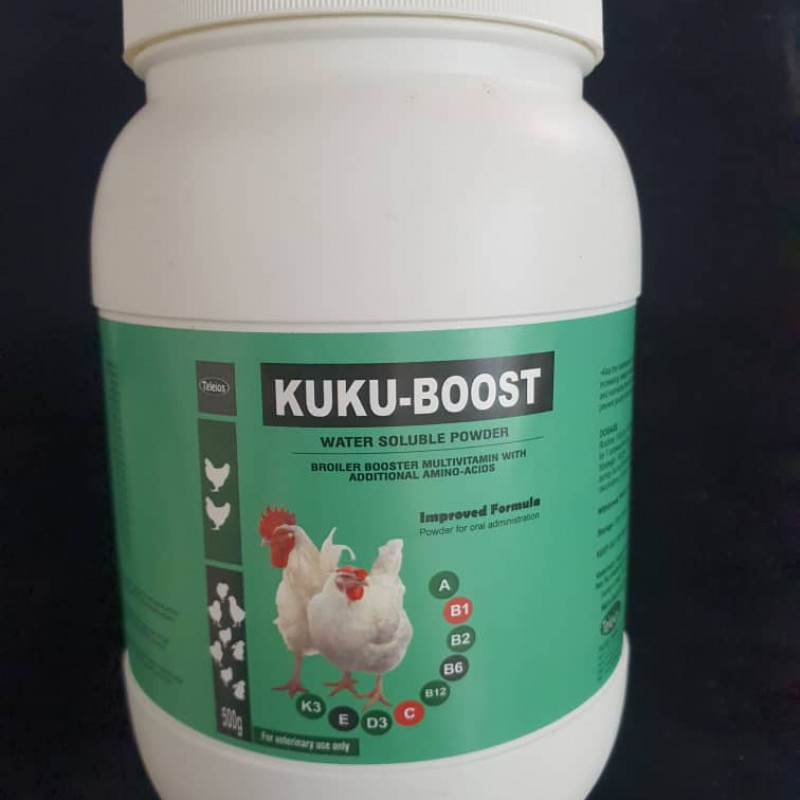
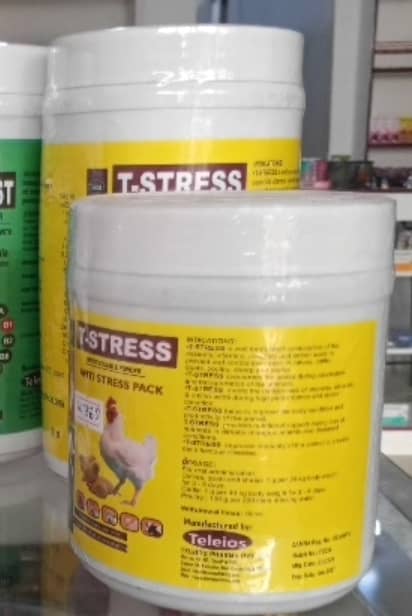
T-STRESS 500g
ZMW360
Stress Pack for chickens is a nutritional supplement designed to reduce the negative effects of stress on poultry. It provides essential vitamins, electrolytes, amino acids, and other nutrients to support recovery, improve immunity, and maintain productivity during stressful periods.
View.jpeg)
T-STRESS 1000g
ZMW700
Stress Pack for chickens is a nutritional supplement designed to reduce the negative effects of stress on poultry. It provides essential vitamins, electrolytes, amino acids, and other nutrients to support recovery, improve immunity, and maintain productivity during stressful periods.
View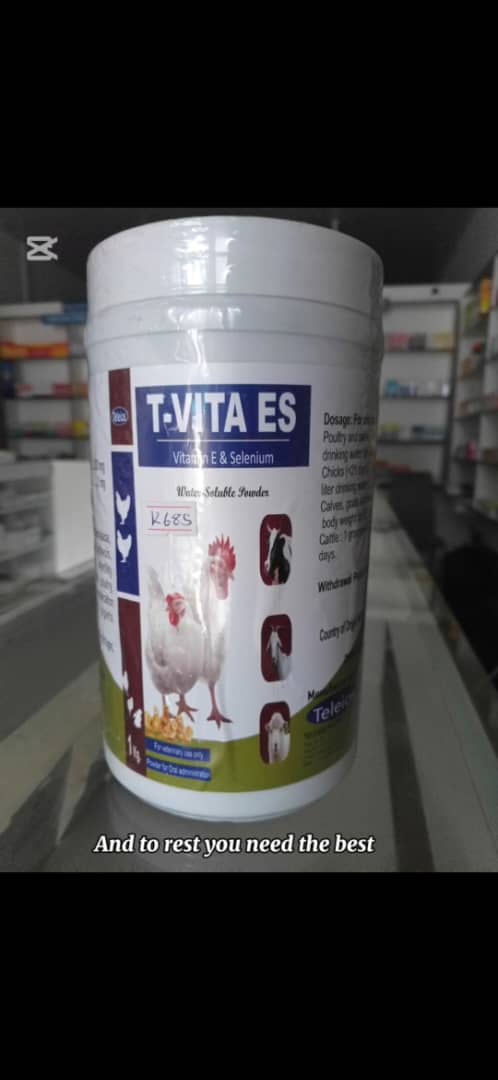
T-VITA ES (VITAMIN E & SELENIUM) 1000g
ZMW685
Both Vitamin E and selenium play vital roles in the proper functioning of the immune system.
View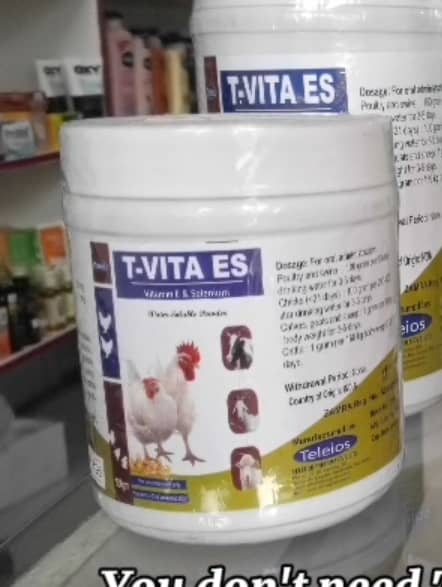
T-VITA ES 500g
ZMW360
Together, vitamin E and selenium work synergistically to combat oxidative stress and support overall cellular health.
View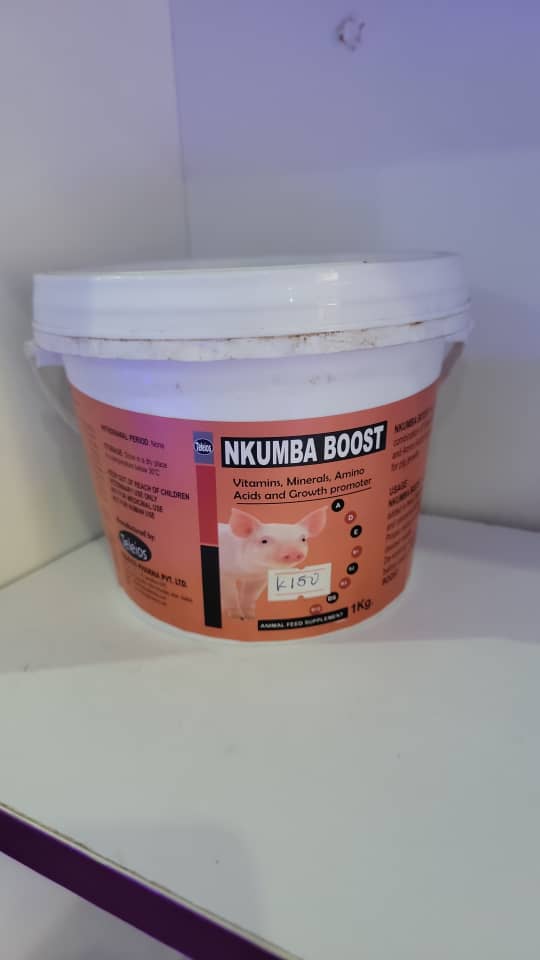
NKUMBA BOOST 1000g
ZMW150
It is a strong combination of Vitamin, Minerals and Amino-acids that is essential for pig growth.
View